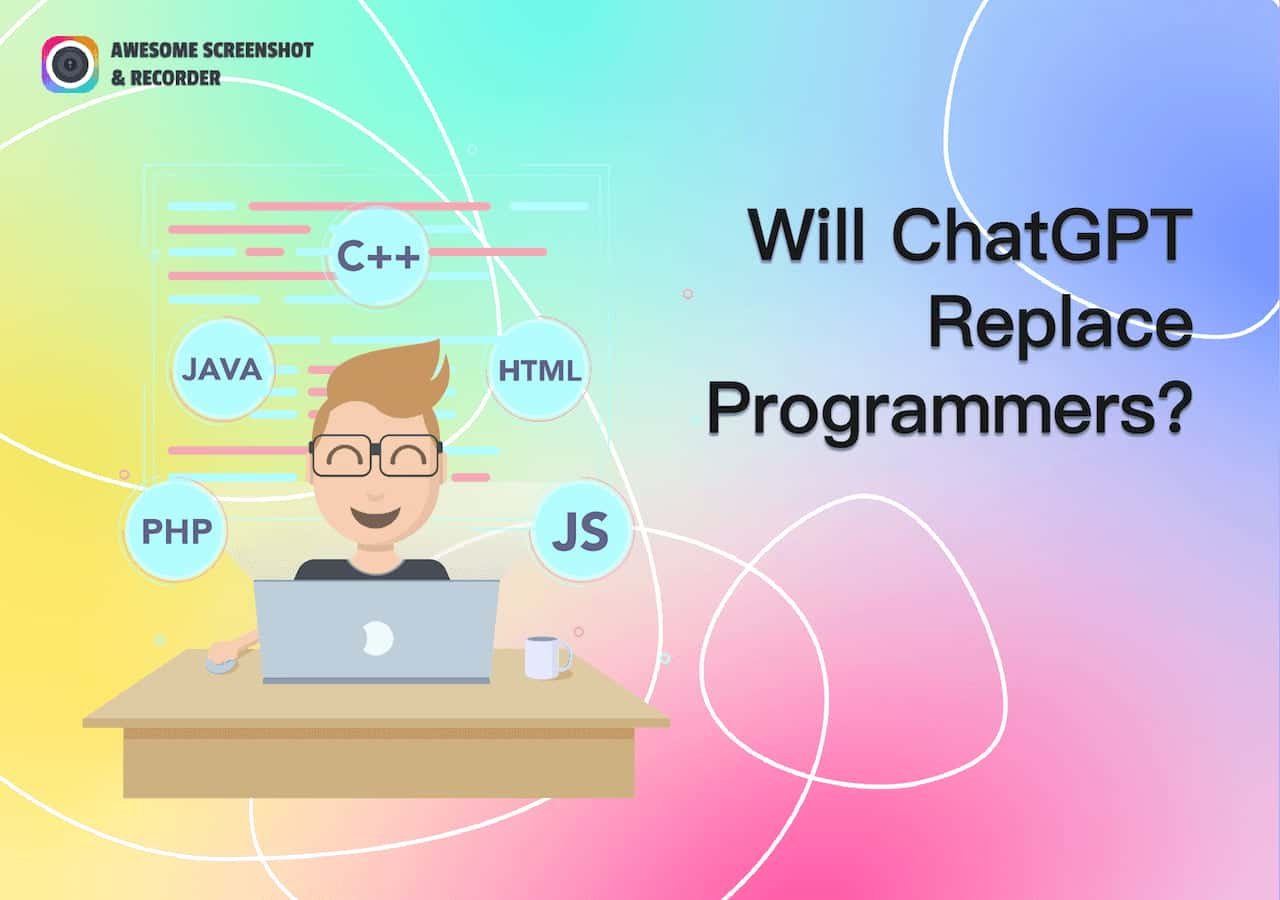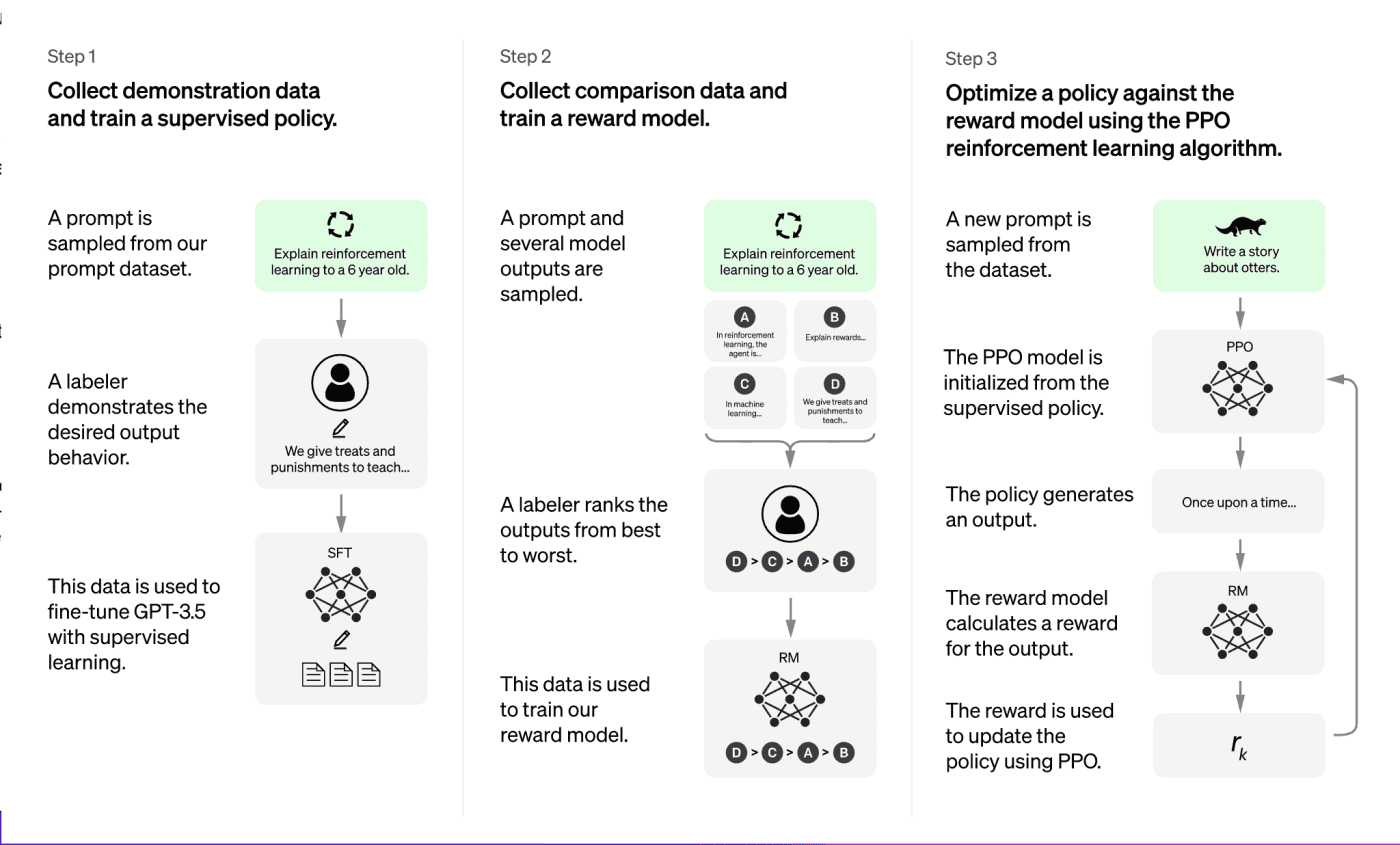Artificial Intelligence (AI) has been rapidly advancing, pushing the boundaries of what machines can accomplish. One such incredible innovation is ChatGPT, developed by OpenAI. ChatGPT is an AI language model that leverages the GPT-3.5 architecture to provide human-like responses to natural language prompts.
However, a recent breakthrough came with the new version of ChatGPT, the GPT 4. But this version is paid. It’s faster and more efficient. This version is paid, but if you are willing to use ChatGPT for free, this blog will give you a sneak peek at how you can use ChatGPT for free.
What is ChatGPT?
ChatGPT is an advanced language model that uses deep learning techniques to process text and generate responses. It is trained on vast amounts of data from the internet, allowing it to understand context, grammar, and even nuances in language. This makes it capable of having coherent and engaging conversations with users, making it feel almost human-like in its interactions.
How to Use ChatGPT?
ChatGPT employs a transformer-based architecture, specifically GPT-3.5, which stands for Generative Pre-trained Transformer. The transformer model uses self-attention mechanisms to process input sequences, enabling it to weigh the importance of different words in a sentence. This approach allows ChatGPT to maintain contextual understanding and generate contextually relevant responses.
GPT-3.5 is pre-trained on diverse datasets from the internet, which provides it with an extensive understanding of human language. The model then fine-tunes specific datasets to optimize its performance for various applications, such as customer support, creative writing, or educational purposes.
How ChatGPT Works?
This humongous dataset was used to form a deep learning neural network […] modeled after the human brain—which allowed ChatGPT to learn patterns and relationships in the text data […] predicting what text should come next in any given sentence.
ChatGPT is an AI language model based on the GPT (Generative Pre-trained Transformer) architecture developed by OpenAI. It uses deep learning techniques, specifically transformers, to understand and generate human-like text. Here’s an overview of how ChatGPT works:
Pre-training
ChatGPT is initially pre-trained on a massive dataset containing a vast amount of text from the internet. During this pre-training phase, the model learns to predict the next word in a sentence, given the context of the preceding words. The objective is to build a language model that captures the statistical patterns and relationships in the text data.
Transformer Architecture
The core of ChatGPT’s functioning lies in the Transformer architecture. Transformers are neural network models designed to handle sequential data, such as language, by considering the context of each word in relation to all other words in the input sentence. This allows the model to capture long-range dependencies and produce more coherent and contextually relevant responses.
Attention Mechanism
The Transformer architecture incorporates an attention mechanism that determines the importance of each word in the input sentence relative to the current word being processed. By paying attention to different parts of the input, the model can better understand the relationships between words and extract meaningful patterns.
Fine-tuning
After the pre-training phase, ChatGPT undergoes a fine-tuning process to adapt the model to specific tasks or applications. Fine-tuning involves training the model on a narrower dataset that is specific to the intended use case, allowing it to specialize in the targeted domain.
Inference
Once ChatGPT is pre-trained and fine-tuned, it is ready for inference, which means generating responses to user input in real time. During inference, the model takes in a sequence of words as input and predicts the most probable next word based on the patterns it has learned from the pre-training and fine-tuning phases.
Context and Continuity
To generate coherent responses, ChatGPT maintains context and continuity in the conversation. It remembers previous interactions and uses that context to generate appropriate and relevant replies.
Iterative Improvement
ChatGPT’s performance can be enhanced by exposing it to more data and feedback. Through iterative training and fine-tuning, the model can continuously improve its language understanding and generation capabilities.
It’s important to note that while ChatGPT can produce impressive responses, there is also a greater probability of it making a mistake. The accuracy of the ChatGPT outcome depends on the prompt. Its responses are based on patterns observed in the training data, which can sometimes lead to biased or untruthful outputs. Efforts are continually being made to improve AI models’ safety, robustness, and ethical usage.
What is ChatGPT Used For?
Customer Support
ChatGPT can be integrated into websites or applications to provide instant and efficient customer support. Its ability to understand user queries and respond appropriately can enhance user experiences and reduce response times.
Writing Assistance
Writers can leverage ChatGPT to overcome writer’s block, brainstorm ideas, or receive creative writing prompts. It can provide helpful suggestions and improve the overall writing process.
Language Learning
ChatGPT can serve as a language learning tool, engaging users in conversations and helping them practice their language skills in real-life scenarios.
Personal Assistant
As ChatGPT evolves, it has the potential to function as a virtual personal assistant, scheduling appointments, setting reminders, and answering general questions.
Education
Educators can employ ChatGPT as a supplementary teaching tool, providing explanations, answering student questions, and assisting in research tasks.
Software Development
ChatGPT can assist developers in writing code snippets, explaining complex programming concepts, or troubleshooting issues.
Key features of ChatGPT4 which make it better than GPT 3.5
ChatGPT-4 boasts several key features that set it apart and make it superior to its predecessor, GPT-3.5:
Enhanced Language Understanding
ChatGPT-4 exhibits a deeper comprehension of language, allowing it to grasp complex contexts and nuances more accurately. This improved language understanding leads to more contextually appropriate responses.
Multimodal Capabilities
Unlike GPT-3.5, ChatGPT-4 is a multimodal model, meaning it can process and generate text alongside other forms of data, such as images and audio. This empowers the model to offer a broader range of responses and applications, including image analysis and captioning.
Advanced Sarcasm and Humor Recognition
GPT-4 surpasses GPT-3.5 in recognizing and responding to sarcasm and humor, making interactions with the model more engaging and enjoyable.
Tailored Responses
ChatGPT-4 has the ability to personalize responses based on user history and context, providing more relevant and useful information to each individual user.
Improved Creativity
With its enhanced language capabilities, ChatGPT-4 excels in generating creative writing prompts, enhancing the potential for imaginative and unique outputs.
Efficient Task Management
The model’s efficiency in handling complex and technical tasks is significantly heightened, enabling users to obtain accurate and valuable answers quickly.
Better Product Recommendations
ChatGPT-4 has a superior capacity for generating tailored product recommendations, enhancing its usefulness in e-commerce and marketing domains.
Optimized Captioning
The model’s proficiency in generating captions for images and videos has been greatly improved, resulting in more precise and relevant descriptions.
Higher Accuracy and Consistency
ChatGPT-4 demonstrates enhanced accuracy and consistency across various interactions, providing a more reliable experience for users.
Continued Learning and Adaptability
The model is designed to learn and adapt from its interactions, which means it can continuously improve and refine its responses over time.
How to Use ChatGPT for Free?
It’s a fact that ChatGPT has penetrated our lives, and we are witnessing its massive growth. However, to access the advanced features of ChatGPT4, one needs to pay some fees. If you want to explore the benefit of ChatGPT4 without splurging the subscription amount, the following hacks will make your task easy.
Hack #1: Free Accesston Bing
Step 1: Install the latest version of Microsoft Edge on your PC or laptop.
Step 2: Navigate to Bing’s official site using this link: https://www.bing.com/new
Step 3: Click ‘Start Chatting’ to embark on your GPT-4 spree.
If directed to the Sign-in page, enter your credentials to begin using Bing.
For users on other browsers, installing the Bing Extension is necessary before following Step 2 to enjoy GPT-4-powered Bing chat.
Hack #2: Free Access on Hugging Face
The AI community on GitHub, known as ‘Hugging Face,’ introduces a free Chat GPT 4 chatbot, eliminating the need for an API key. However, due to high traffic, some waiting time may be involved. Here’s how to access Chat GPT 4 for free through Hugging Face:
Step 1: Visit the site at https://huggingface.co/spaces/ysharma/ChatGPT4
Step 2: Input your queries in the console and click ‘Run.’
GPT-4 represents a significant advancement in the tech world, bringing numerous benefits that enhance user productivity. However, caution must be exercised when entering sensitive or personal information. Overreliance on AI models may have long-term consequences for the human brain. In any case, remember to make use of your most precious gift – your own brain!
Hack #3: Free Access on Ora.sh
Beyond the initial two hacks, there’s more to uncover. The next opportunity is provided by the web platform Ora.sh, which facilitates the quick development of LLM apps within a shareable chat interface. Here’s how to access Chat GPT-4 for free on Ora.sh, without any message limits or waiting queues:
Step 1: Access the web platform Ora.sh via this link: https://ora.sh/openai/gpt4
Step 2: Sign in using your email and start utilizing Chat GPT-4 without any constraints.
Step 3: Directly ask questions through the interface.
Hack #4: Free Access on Nat.dev
Nat Friedman, the ex-CEO of GitHub, has launched a tool for comparing various LLM models worldwide. To use Chat GPT-4 for free, you can compare it with other tools or use it independently. However, there’s a daily limit of 10 queries, so use it wisely. Here’s how to access it:
Step 1: Go to https://nat.dev/ and sign up using your email address and phone number.
Step 2: After signing up, go to the settings in the right panel and change the “Model” to “gpt-4.” Keep everything else in default until you become familiar with the platform.
Step 3: Access the ‘Playground’ tab and ask your questions freely.
Will ChatGPT Replace Programmers?
With the advanced features offered by ChatGPT and being able to take up the charge for most of the work, a common question that pops up is whether ChatGPT will replace programmers. Well, the technology is still at a nascent stage to objectively answer this question. However, the fact is that ChatGPT will certainly be of great assistance to programmers. It will help them complete their tasks more efficiently and with lesser flaws.

Programmers are essential for developing and maintaining AI models, writing complex algorithms, designing software, and solving unique problems that require critical thinking and human intuition. Hence, tools like ChatGPT can provide assistance in their work but not replace them completely.
The Ethical Considerations While Using ChatGPT
With the advancements in AI, ethical concerns are paramount. ChatGPT must be designed with proper safety measures to avoid potential misuse or propagation of harmful content. OpenAI has continuously emphasized responsible AI usage, implementing safeguards to limit misinformation and offensive responses.
Moreover, ChatGPT should always be transparent about its AI nature, ensuring that users are aware that they are interacting with a machine, not a human.
Frequently Asked Questions
What Makes ChatGPT-4 Superior to Its Predecessor, GPT-3.5?
ChatGPT-4 is a modified version of ChatGPT3.5; it comes with enhanced features like better language understanding, multimodal capabilities, and improved creativity. It can recognize sarcasm and humor. At the same time, it also provides tailored responses and efficiently handles complex tasks. All these features make ChatGPT4 a better and more efficient model.
How can I access ChatGPT-4 for free?
You can access ChatGPT-4 for free through various platforms. For example, you can use Microsoft Edge. It enables free usage on Bing’s chatbot. Hugging Face provides a free Chat GPT-4 chatbot without requiring an API key. Ora.sh and Nat.dev are other platforms offering free access to ChatGPT-4.
What Industries Can Benefit From ChatGPT-4?
ChatGPT-4’s applications are versatile, spanning industries like healthcare, finance, education, and engineering. Its advanced features, improved accuracy, and tailored responses make it invaluable in customer service, creative writing, image analysis, and more.
Closing Thoughts
Utilizing ChatGPT for free is indeed possible, thanks to several innovative hacks and platforms. With the introduction of ChatGPT-4, powered by Microsoft’s GPT-4 model, users can access its advanced language capabilities without spending a dime.
In the end, the prospect of using ChatGPT-4 for free opens up exciting possibilities across various industries, revolutionizing the way we engage with AI-driven language models. By making the most of these free options, users can experience the power and potential of ChatGPT-4 without any financial constraints, enriching their experiences and interactions with artificial intelligence.
Learn ChatGPT Prompts for Free with Pickl.AI’s ChatGPT Course
ChatGPT prompt engineering is going to play a pivotal role in improving the functionality of ChatGPT. Moreover, it will also ensure that ChatGPT will be utilized at its full potential. Hence, if you are willing to explore more about ChatGPT, then Pickl.AI is giving you to learn the framing of ChatGPT prompts for free, join the free ChatGPT course today.






